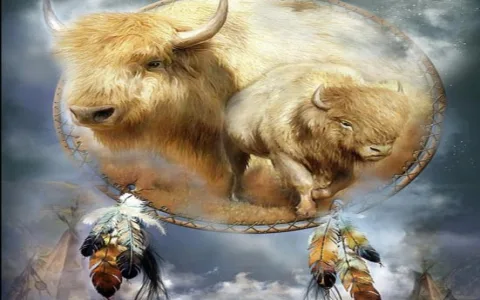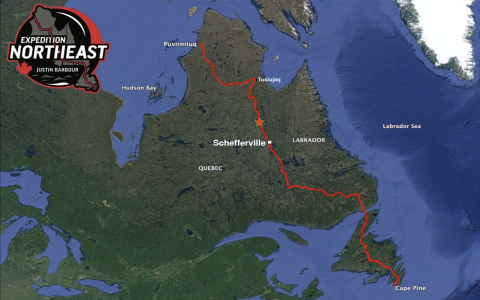This morning, I casually opened the Book of Genesis in the Bible. I hadn’t really planned to read it seriously; I just wanted to glance through it. After all, this story—Cain and Abel—I’ve heard since childhood. I heard it in Sunday school when I was little, and I’ve read bits and pieces of it several times as I grew up. I always thought, “Oh, it’s that story of brothers killing each other again.” Nothing new.
But today was different. For some reason, as I read, a lump suddenly formed in my throat. Maybe it was because yesterday I had a brief argument with my neighbor over a parking spot. It was a small thing, lasting only seconds, but afterward I felt uneasy, thinking I’d been petty to get upset over such a trivial matter.
That feeling made me decide to sit down and read the story properly.
I sat down and read it verse by verse
I brewed a strong cup of coffee and pulled out my old notebook—its cover stained with coffee, the edges curled. Sitting on the sofa, I began at Genesis 4:1, reading word by word.
The story is simple: Adam and Eve had two sons, Cain and Abel. Cain worked the land; Abel tended sheep.Both offered sacrifices to God. Cain brought some of his crops, while Abel chose the best lamb from his flock.
What happened? God accepted Abel’s gift but showed no reaction to Cain’s. The text doesn’t say why—it simply states, “God looked with favor on Abel and his offering, but he did not look with favor on Cain and his offering.”
Reading this, my heart skipped a beat. If it were me, I couldn’t stand it either. After toiling in the fields and offering what I’d grown, someone else gets favored effortlessly? That’s not fair!
Cain’s reaction mirrors each of us
What followed struck a deep chord with me. The scripture says: “Cain became very angry, and his face fell.”
In plain language: He was furious, his face darkened.
God saw this and asked him, “Why are you angry? Why so upset? If you do what’s right, you’ll be accepted. But if evil lurks in your heart, it’s like a beast crouching at your door, ready to pounce and devour you. You must control it.”
I read this passage several times. “Sin is like a beast crouching at the door.” This metaphor is powerful. It doesn’t suddenly pounce; it creeps up silently. You might start with a little irritation, then jealousy, then anger, until you lose control.
But Cain didn’t listen. He didn’t restrain that “beast.” The more he thought about it, the angrier he became, convinced he’d been wronged. Later, he called Abel to the field and killed him when no one was around.
Reading this, my palms started sweating. This wasn’t a momentary impulse—it was more like emotions building up bit by bit until they exploded. He wasn’t unaware of what he was doing; he chose not to do what was right.

After the murder, he still tried to deny it
God asked Cain, “Where is your brother Abel?”
He actually replied, “I don’t know. I wasn’t watching him!”
This line sounds all too familiar. Don’t we often act this way? When we make a mistake, our first instinct isn’t to admit it—it’s to shift blame. “I didn’t force you,” “You never said no,” “But others do it too, right?”
We always try to distance ourselves, unwilling to face the consequences.
But the outcome arrived: Cain was banished from his home, unable to farm the land again, doomed to wander. Only then did fear grip him: “My punishment is too heavy to bear.”
Too late. The deed was done. The damage was done.
This story made me think of three things
I jotted these down in my notebook because I found them truly valuable:
1. Rejection hurts, but how you respond reveals who you truly are
Cain’s offering was rejected, and he was deeply hurt. That’s natural. We all fear rejection—when our work isn’t accepted, friends ignore us, or our efforts go unnoticed.
But the point isn’t “what happened,” it’s “how you handle it.”God had warned Cain long before: “You must control your heart.”
We too have choices. We can get angry or stay calm; we can be jealous or bless others.
2. Jealousy is like poison—it starts small but eventually destroys you
Cain didn’t set out to kill his brother. It began with “I’m less loved than him.” That thought grew until it became hatred.
We’re no different today. Seeing others thrive—landing great jobs, buying new cars, racking up likes on social media—leaves us feeling sour.
The problem is, such comparisons don’t make us better; they only wear us down and make us less happy.
3. We’re all watching over each other
Cain said, “Am I my brother’s keeper?” As if to say: His affairs are none of my business.
But the story tells us otherwise. We live in the same world, and each person’s pain and joy affects others.
Yesterday, I argued with my neighbor. It wasn’t really about the parking spot; it was because neither of us thought to “give a little.” If I had said, “You park first,” nothing might have happened.
A Small Gesture, Yet It Felt Different
After reading this story, I put down the book and sat there lost in thought. Then I got up, went downstairs, found my neighbor, and said, “I was rude yesterday. I’m sorry. If it snows next week, I’ll shovel your side of the walkway.”
He paused, then smiled and said, “Thanks.”
Just those simple words made me feel so much lighter inside. It was as if I’d chased away that “beast crouching at the doorway.”
This ancient story plays out every day
The tale of Cain and Abel sounds like something from thousands of years ago. Yet it unfolds around us daily.
Not literal murder, but:
- Speaking ill of others out of jealousy
- Snubbing someone out of anger
- Hurting others out of resentment
Each of us harbors that “beast” within. It may not be called ‘sin’—it could be “anger,” “inferiority,” or “resentment.”
But the crucial question isn’t whether it exists, but whether you can control it.
So what’s the lesson of this story?
It’s not that “Cain was evil,” but rather:
When you feel upset, don’t act impulsively. Pause first and ask yourself: What kind of person do I want to be?
This sounds simple but is hard to do.
Yet try it just once, and you’ll discover—
Controlling yourself holds greater power than venting your emotions.




